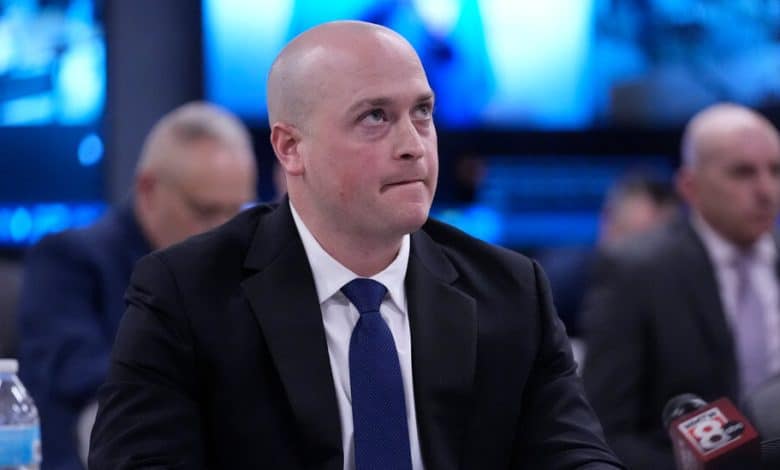Panel Examining Lewiston Shooting Presses Army Reservists on Gunman

A commission investigating the October mass shooting in Lewiston, Maine, interrogated Army Reserve colleagues of the gunman, Robert R. Card Jr., at a hearing Thursday, pressing for answers about their failed efforts to prevent him from inflicting harm and eliciting some of the most detailed accounts yet of the months leading up to the rampage.
Members of the commission drilled down on key moments of inaction by military supervisors who knew of the shooter’s threats, erratic behavior and access to weapons, seeking accountability among the multiple law enforcement agencies and military personnel who traded concerns about Mr. Card, as his mental state deteriorated last year.
“Since families can’t police their own, was it a very good plan that relied on the family to remove his weapons?” George Dilworth, a former assistant U.S. attorney for the District of Maine and a commission member, asked Army Reserve Capt. Jeremy Reamer, who was involved in the response to Mr. Card’s worrisome behavior.
After a failed attempt by the local sheriff’s office to check on Mr. Card’s welfare in September, authorities conferred with his family on a plan for them to secure his firearms.
“I didn’t know the family dynamic, so I can’t comment on that, but it was a plan, and in my experience, a viable plan,” said Capt. Reamer, his voice quiet and his demeanor solemn as he sat alone at the witness table.
On the night of Oct. 25, Mr. Card, a 40-year-old Army Reserve grenade instructor, shot and killed 18 people at two popular recreation venues in Lewiston, a bowling alley and a bar where cornhole enthusiasts gathered to unwind. After a two-day manhunt for the missing gunman, he was found dead of a self-inflicted gunshot wound.